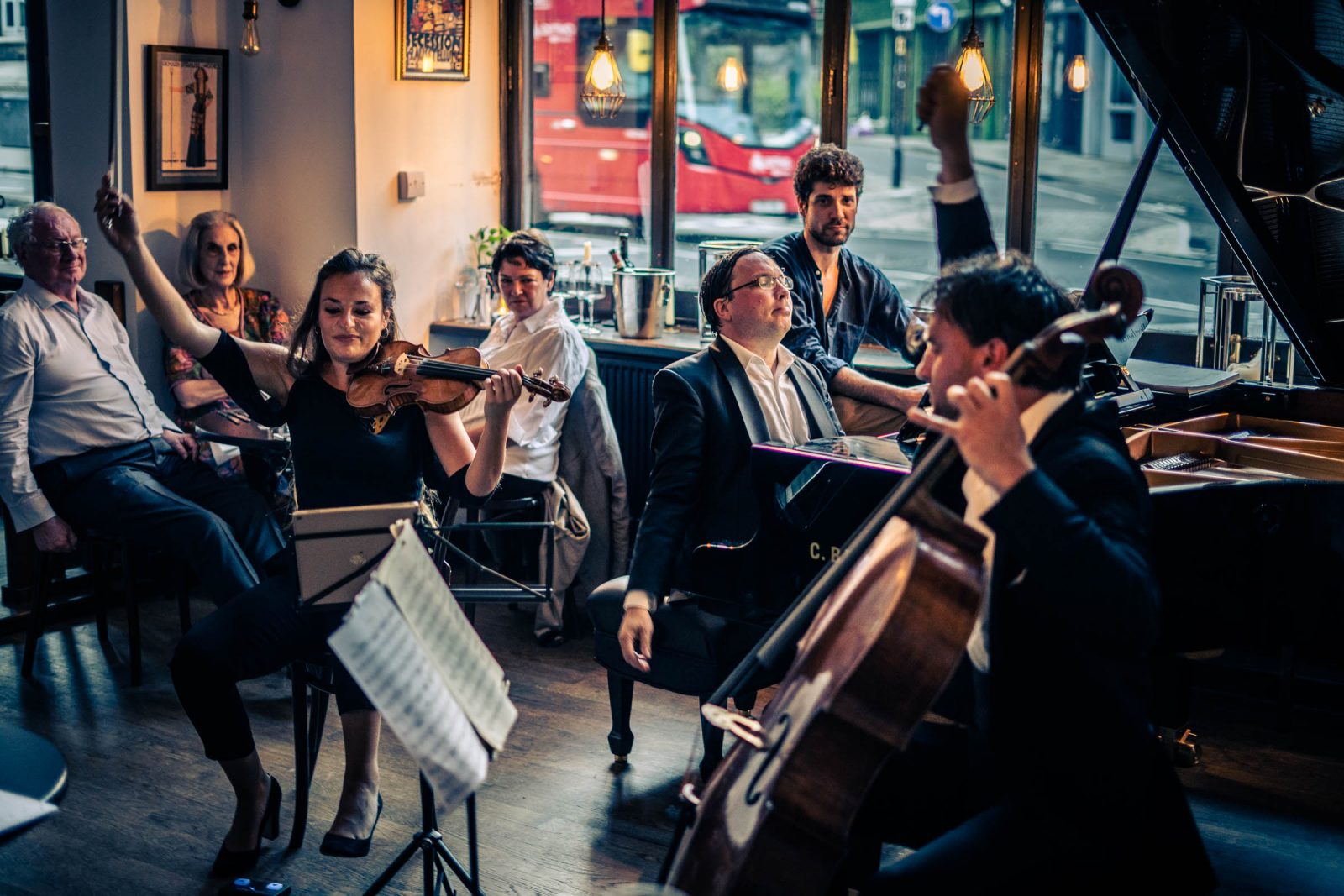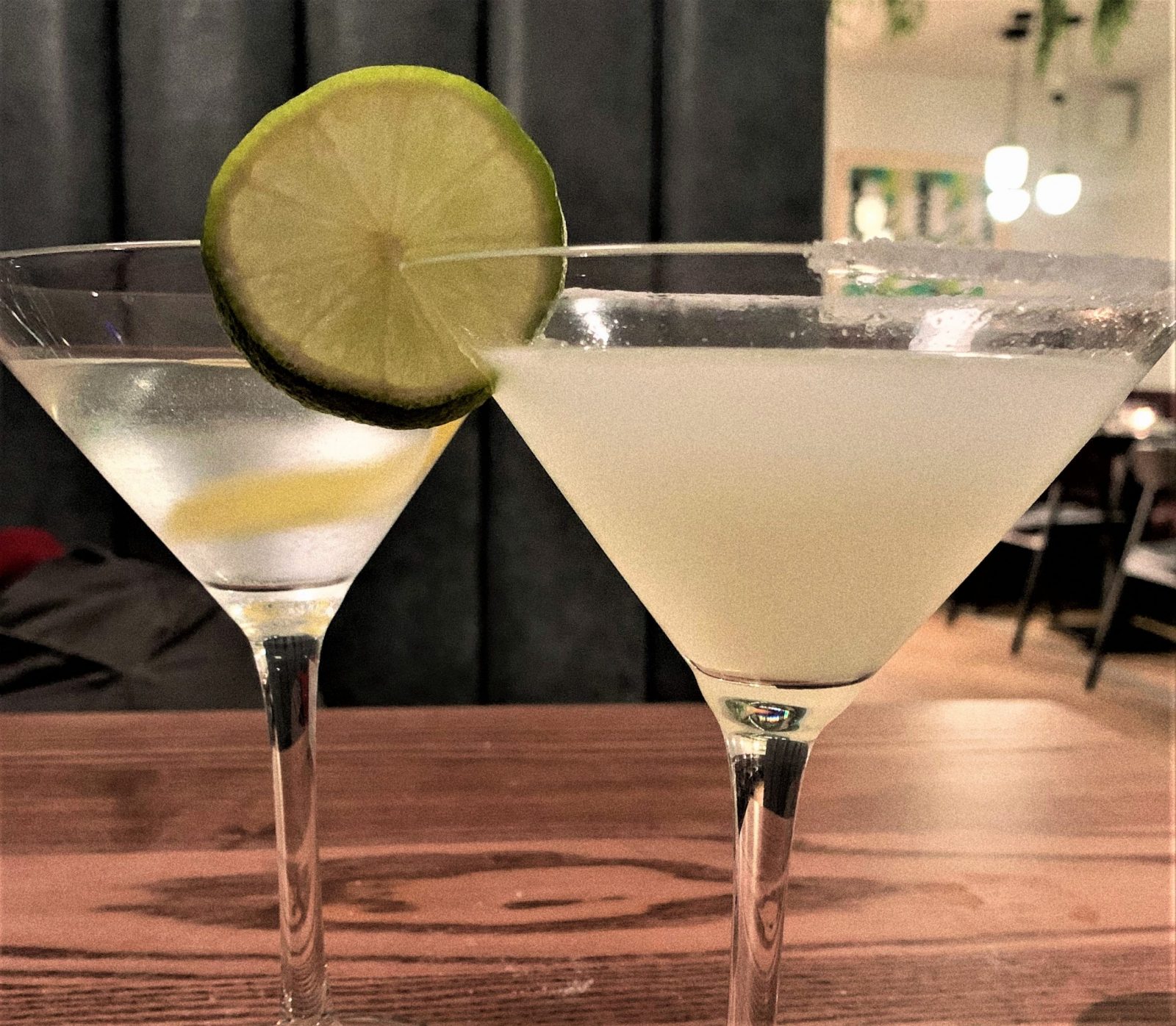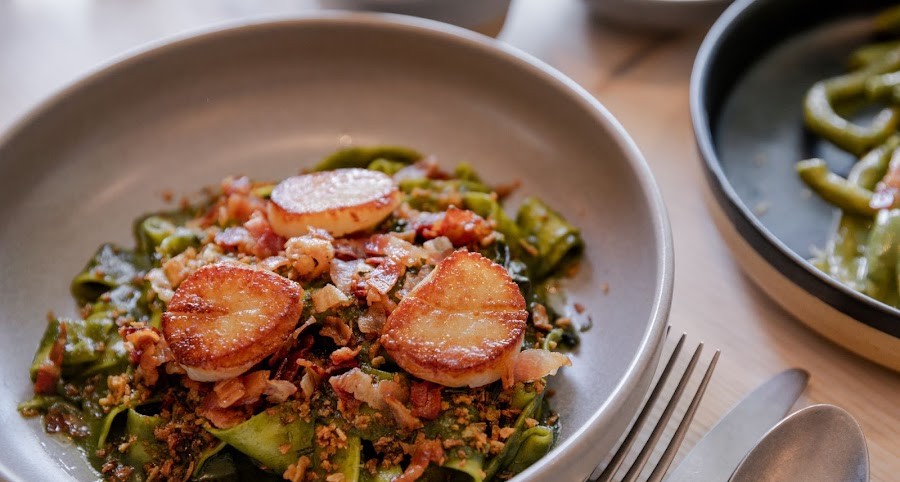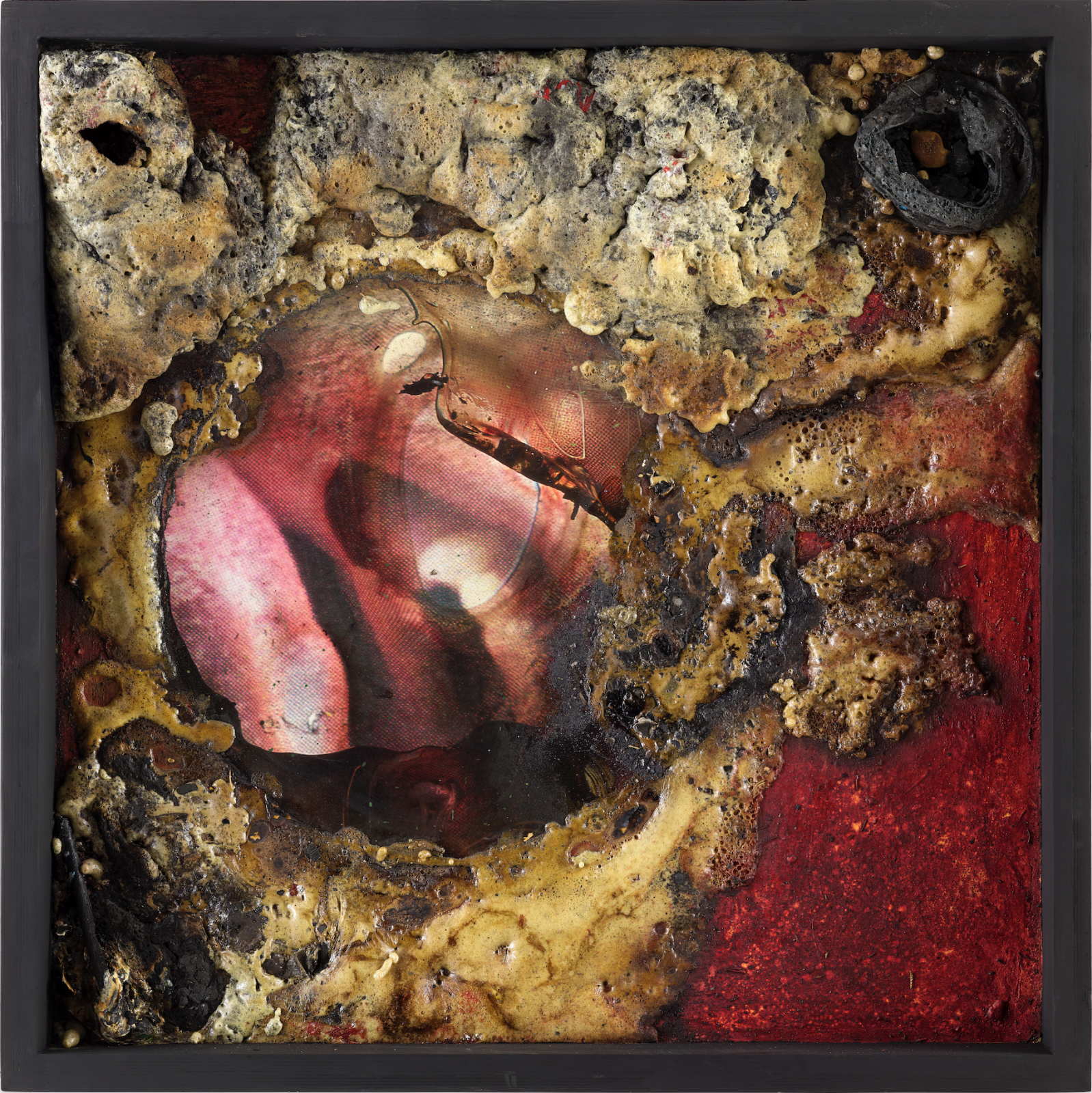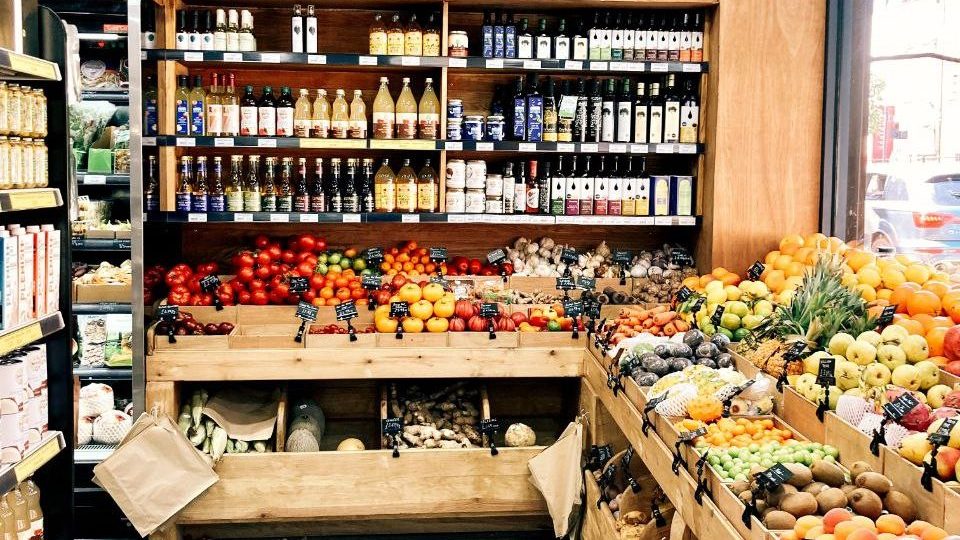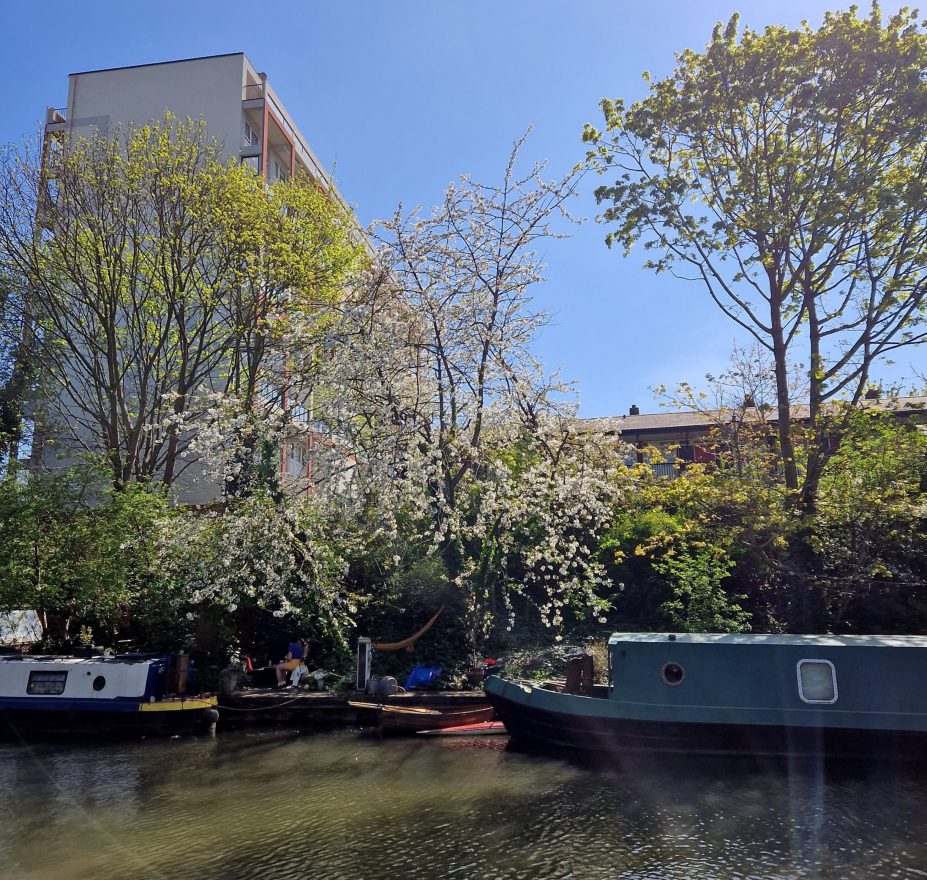An elegant fusion of music and food is what you will get when you visit Fidelio. Here is a place where gastronomy, classical music and jazz intertwine, creating an exceptional feeling of savouring the moment with all your senses. In this article, Ana, author of @islington_london and editor of the Islington Storyteller, shares the remarkable story of Fidelio and its founder.
A Serendipitous Encounter
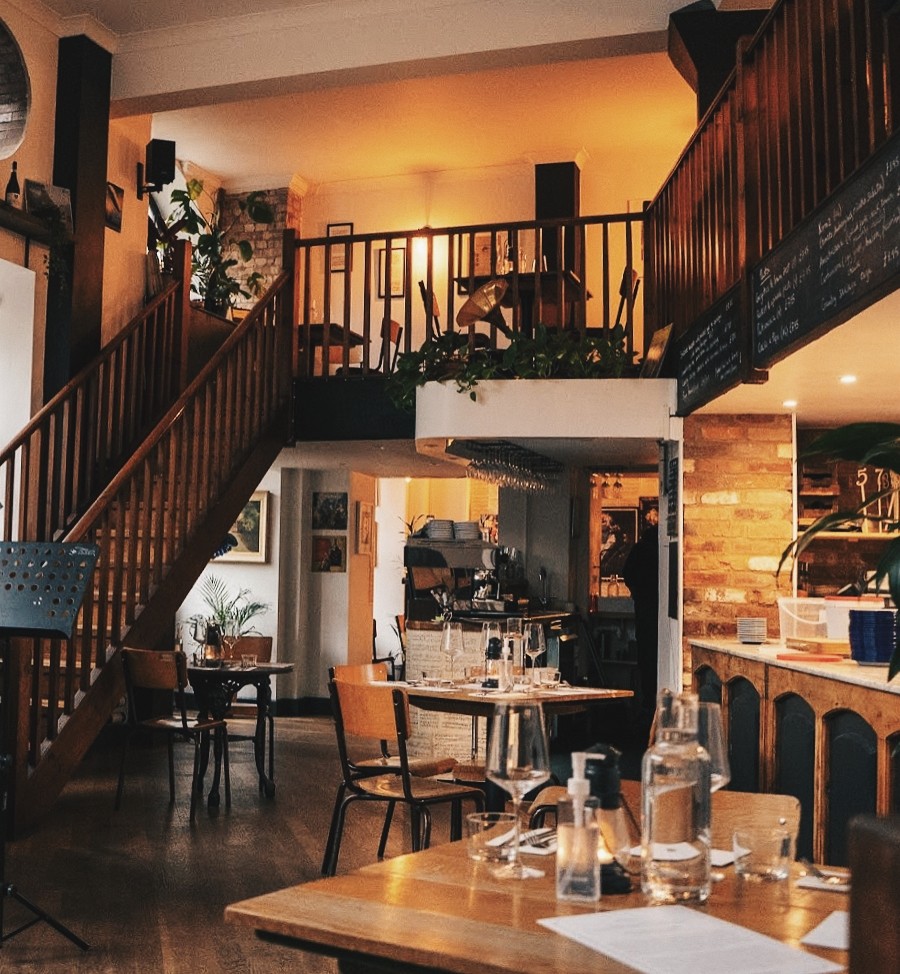
As I was walking down Clerkenwell Road making my way to Holborn, I was mulling over ideas on bringing to light the remarkable stories our neighbourhood hides in its local cafes, pantries, artist workshops and community gardens. This is when I stumbled upon an ornate sign covering the facade of a seemingly uninteresting building. The elaborate font reading ‘Fidelio’ immediately captured my gaze. This name brought to mind Beethoven’s only opera, centred around the topic of light and darkness, and the liberation of a man from captivity by his loving wife. Still wondering whether there was any relation between the two titles, I sensed that inside this cafe, an intriguing story awaits to be told.
Serendipity is by far my favourite word in the English vocabulary. I don’t quite know a term in any other language that would explain the exact same concept of encountering something valuable purely due to happy coincidence. For what it’s worth, it was by a serendipitous encounter that I discovered Fidelio, a cafe, restaurant and music hub for creatives and restaurant-goers.
Not long after, The Islington Storyteller sat down with Raffaello Morales, the man running the show, to find out about the conception of Fidelio and their future plans. This is the first article in the Local Profile series, a section of the blog exploring the unique stories of North London entrepreneurs, artisans and artists.
Fidelio in Action
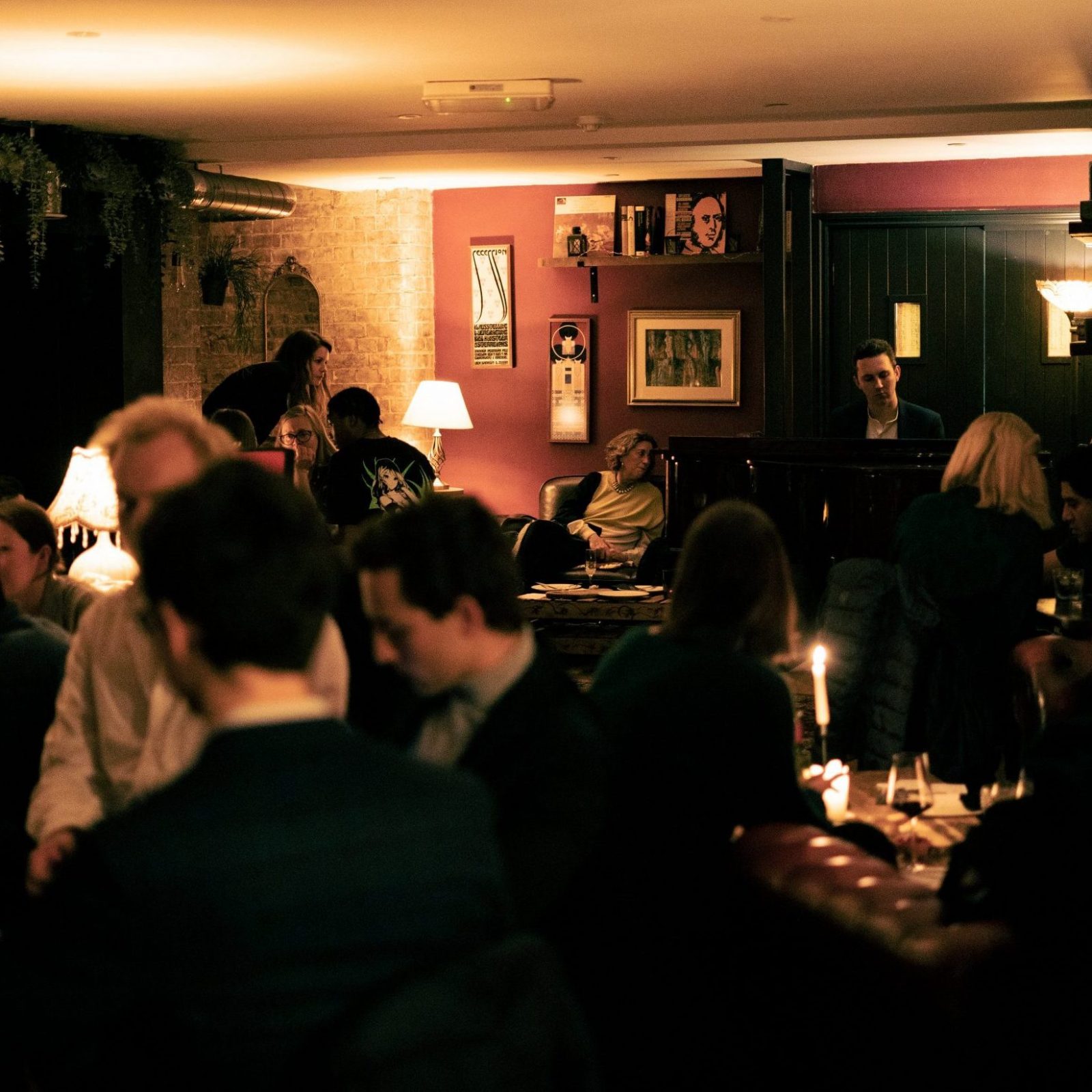
Together with a few friends, one evening we came down to Clerkenwell Road for one of the Fidelio Jazz nights, featuring the brilliant bass player Misha Mullov-Abbado and pianist Liam Dunachie. In his recent interview about the Islington Music Festival, world-class bass performer Leon Bosch said: “Music starts where words end”. This is exactly how many guests feel during such special evenings at Fidelio.
We were greeted at the entrance by the owner, Raffaello, and taken downstairs. Dimly lit, cosy corners, thoughtfully arranged sofas, armchairs, stools and whatever else one can possibly sit on were beckoning us to lounge upon. The room was getting livelier by the minute, slowly buzzing with laughter and clinking of wine glasses. A piano in the rightmost corner undoubtedly dominated the room. It drew curious peeks both from experienced jazz listeners and those, like me, who were just starting to discover the alluring world of mellow tunes and creative freedom. As drinks were served and happy guests continued sinking into cushy sofas, the first piano chords started filling the room.
During the interval, we were treated to some delicate garlic pappardelle and the much-awaited burrata with focaccia and cocktails. As the evening neared its end, one could not help but notice how everyone, willingly or not, left behind the rush of capital life and gave into the joy of slow living, dolce vita, joie de vivre or however else you may call this concept which we all so eagerly talk about and yet so rarely allow ourselves to experience. Feeling sad to have to leave, we said our goodbyes to the talented performers, Raffaello and his team and made our way back into reality.
Meet Raffaello Morales
A few days after, Fidelio’s owner, Raffaello, sat down with The Islington Storyteller to share his captivating journey to Fidelio’s inception.
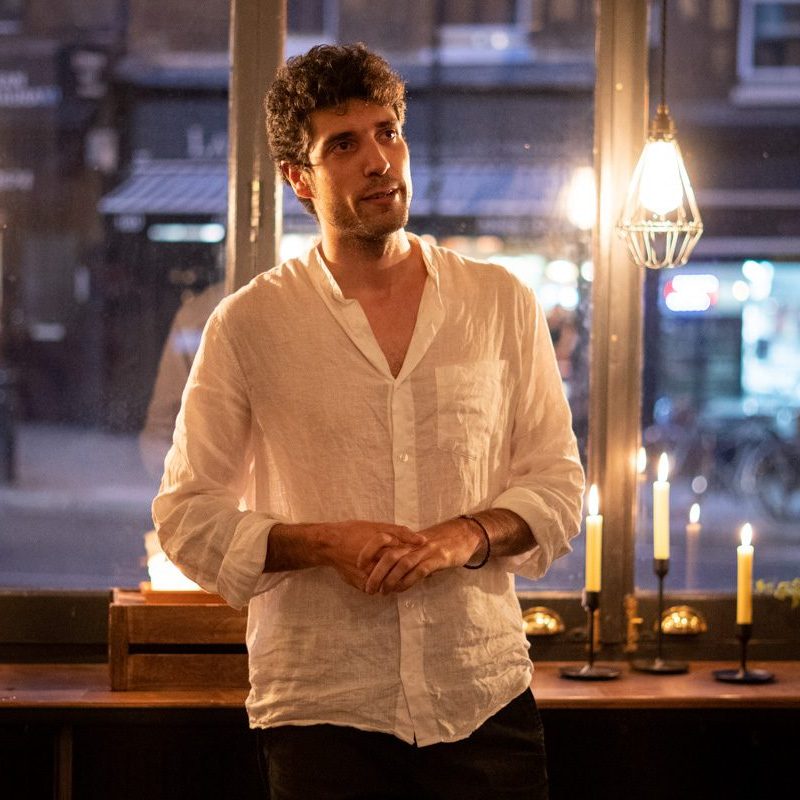
A: Tell us about yourself and what led your relationship with music.
R: I trained as a pianist but have never worked as a professional musician. After music school, I undertook a degree in Physics and went to work for an investment bank. I then did a PhD in Maths and after a few years of working in the bank, I felt like this was not the path I wanted to follow long-term. So I quit and started thinking about what I could do, something that centered around music. And I came up with this idea: a music venue that could also offer food, drinks and serve as a place for building a community of creatives. In a way, making the experience of classical music a bit…
A: More approachable, in a sense, right?
R: Yeah, precisely. That’s the ethos behind the project. Music was not the only value proposition of the project. What we are trying to do is create a sort of destination for creatives from different places and give them evenings like the one you’ve come to a couple of weeks ago. It’s a nice environment for those looking for something different in the centre of town.
A: It must have been difficult to start this business on your own and single-handedly run it for over three years. What challenges did you encounter in the process?
R: Well, when covid got into the picture there were constant mood swings and worries about whether the project would survive. I never considered closing, however. We were trying to solve the problems as they were coming up and here we are, three years later! Surprisingly, lockdowns helped us in terms of generating awareness and spreading the word about our work. As concert halls remained closed, it came to really well-established musicians starting to notice us and proposing to get involved in our events.
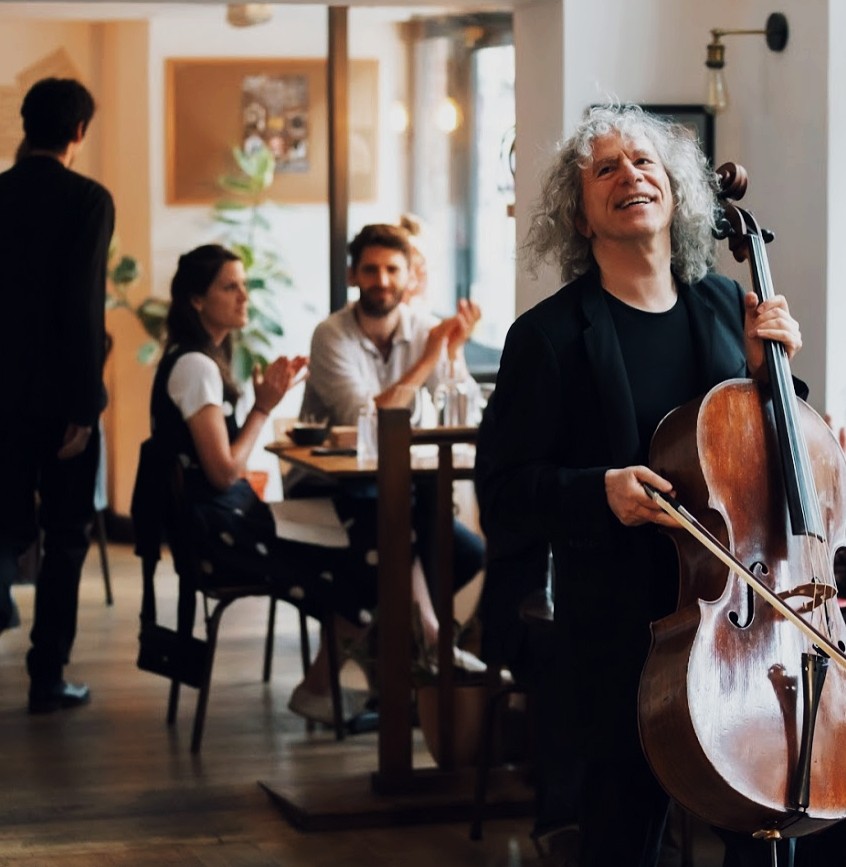
A: Could you tell me more about the concept of your events?
R: The focal point of our events are the evening classical music concerts performed in a chamber setting followed by a three-course tasting menu crafted by our chef. We try to program in a way to attract a varied audience and then our chef does the magic of coming up with a tasting menu that would complement the music. We also use seasonal ingredients.
A: Oh this sounds interesting! How do you decide on the food options based on the programme?
R: It depends! Last night was interesting. The program was Beethoven’s Piano Sonatas. Beethoven was famous for loving fish. He used to eat trout a lot. So our main course was a seabass fillet with polenta and preserved lemons, and samphire grass salad which was very refreshing. We had gnocchi with smoked potatoes, bacon and parmesan for starters. And the dessert was coffee cake.
A: Inspired by Viennese coffee?
R: Exactly!
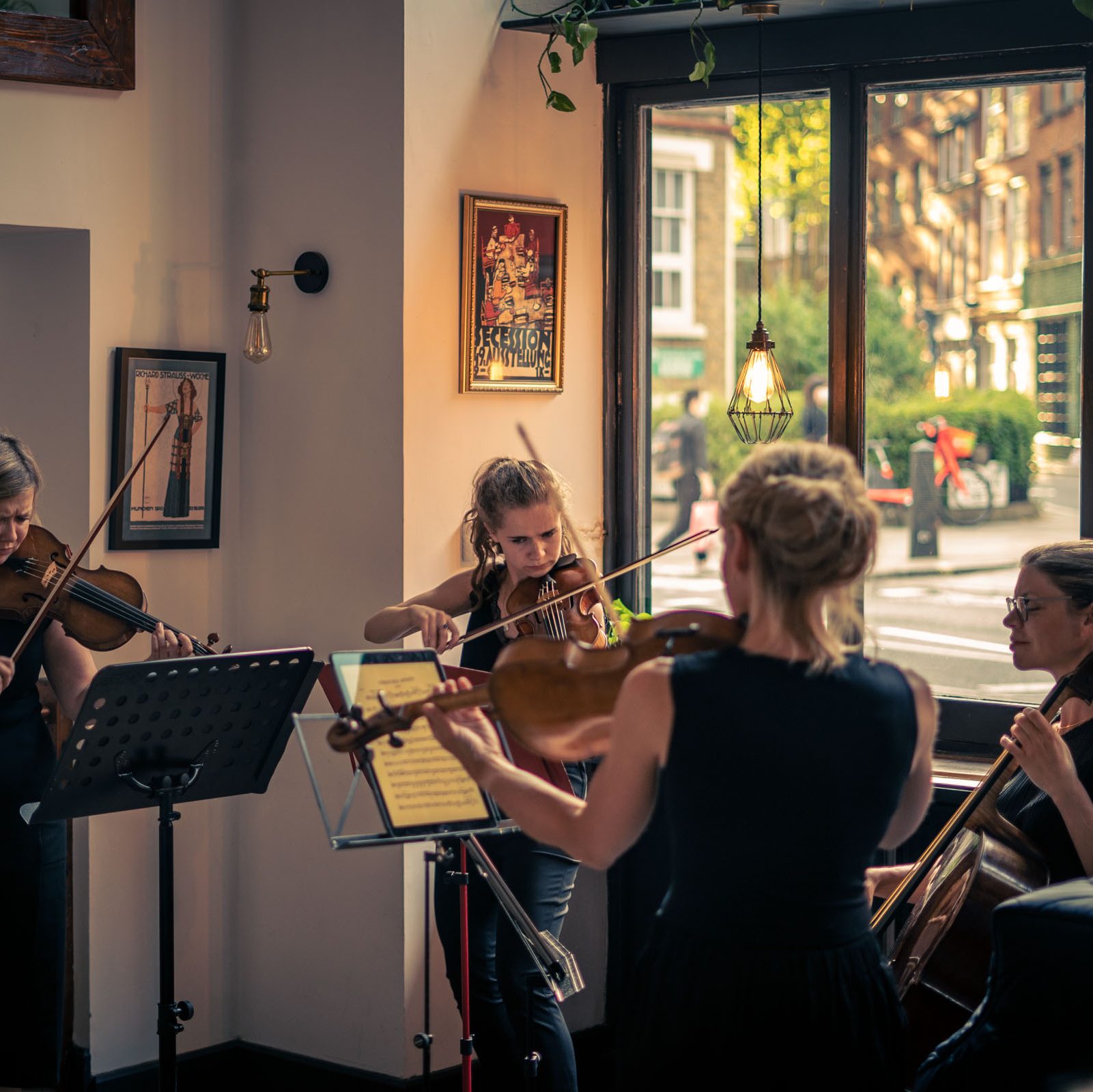
A: What about your guests, how do they recall their experience?
R: Many people say it’s something special, something intimate. Intimate is a word used very frequently when describing the experience of music evenings at Fidelio. Up-close, being right next to the musicians and connecting with the music on an even more powerful level.
A: What about the name of the cafe? Why ‘Fidelio’?
R: The name comes from an opera. It is an interesting piece of work which has not enjoyed as much success like many others. Although I think, it is a wonderful story, which touches upon many topics that are still relevant nowadays like what is the relationship between men and women in society, and expectations from them. There is also the topic of liberation. It is set in a prison where the main character was jailed and his wife disguises herself as a man to free her husband. The storyline is very modern its perception of the mechanisms that lead to freedom which I found very inspiring.
A: How do you feel about the current standing of classical music and the loss of its popularity, especially among young audiences?
R: Music is an activity that requires a lot of time and people nowadays value time in the opposite way of how it’s valued by a musician. The more you can do in a shorter period of time, the cooler you are. Whereas with music it’s the other way around: you have to focus on one thing and do it for as long as it takes you to make it as close to perfect as possible. It is sad that this is often times less appreciated in the contemporary world.
A: How do you envision the Fidelio project in this context?
R: Part of the concept was to renew the very established tradition of salon music in early 19th century Europe, which was later taken over by the development of the concert hall. So yes, having a small space for a few friends to share and enjoy music is something that you are not going to see that often anymore.
A: Is this how the Fidelio project tries to restore this connection with classical music?
R: That’s right! Rather than strictly being a music venue, we are turning into a hub for uniting creatives, where music acts as a cohesive force to bring people together in a space which feels both like home and a like a modern salon.
A: Agreed! Thank you so much, Raffaello, for taking the time to share your story. I’m excited to see the project grow!
What’s next?
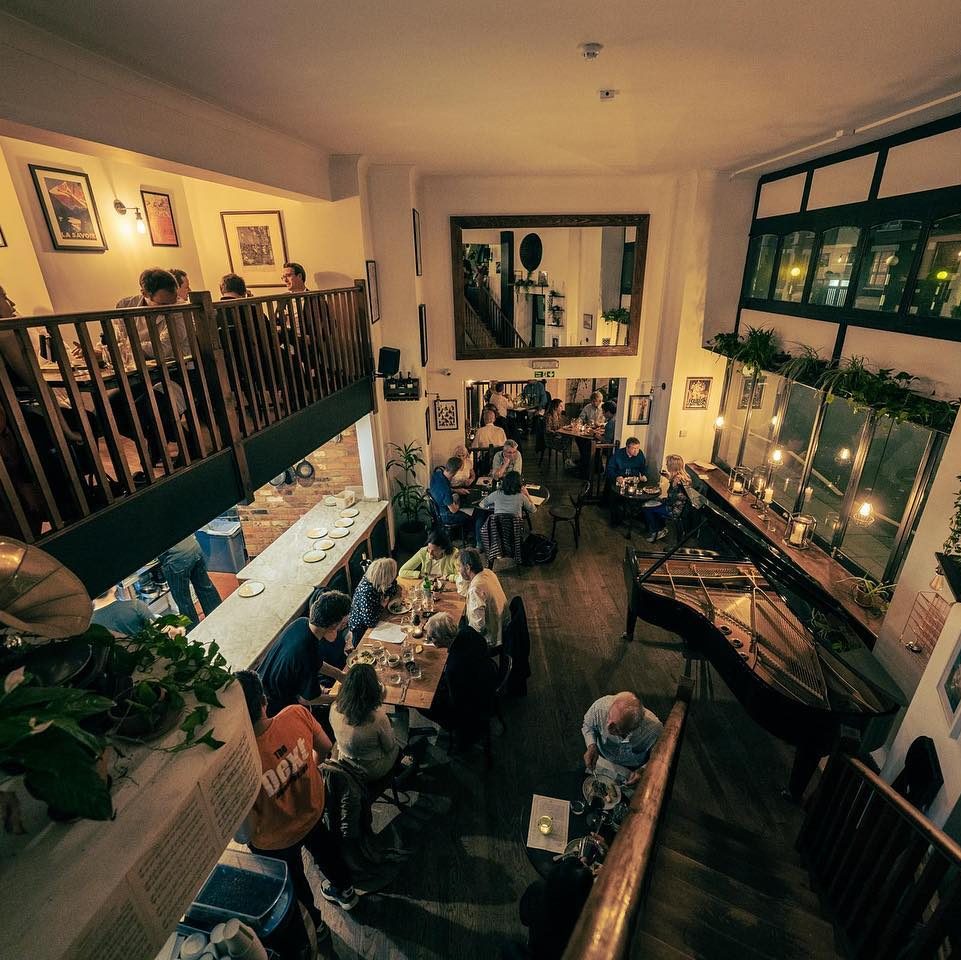
Raffaello has some exciting plans for Fidelio, there might even be sister restaurants opening in Europe and beyond. The Islington Storyteller is curious to see how this journey unfolds!
In the meantime, there are many ways in which you can become part of the Fidelio family. It is a café until 3 pm on work days, a laid-back jazz bar on two Mondays a month and a restaurant & chamber music venue on most other evenings.
Check upcoming events and get tickets here.
Address: 91-95 Clerkenwell Rd, London EC1R 5BX
About the author: I’m Ana, the creator of the @islington_london Instagram page and editor of The Islington Storyteller. In addition to my day job, my love for North London has taken over my free time and is the reason The Islington Storyteller came to life. The blog is lucky to have many wonderful contributors but it feels very special for me whenever I get the opportunity to sit down and write one of the stories myself.
All images are courtesy of Fidelio Cafe.

